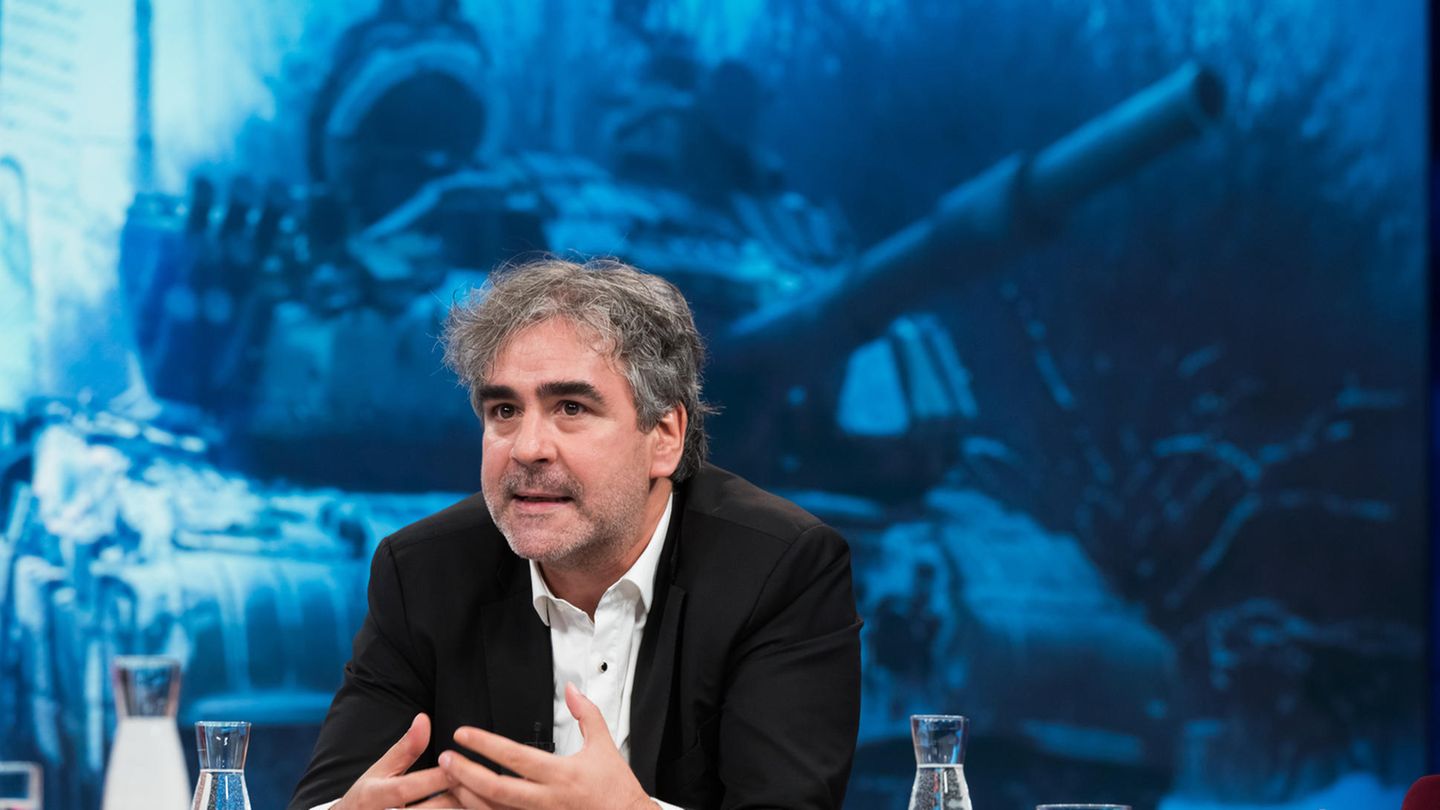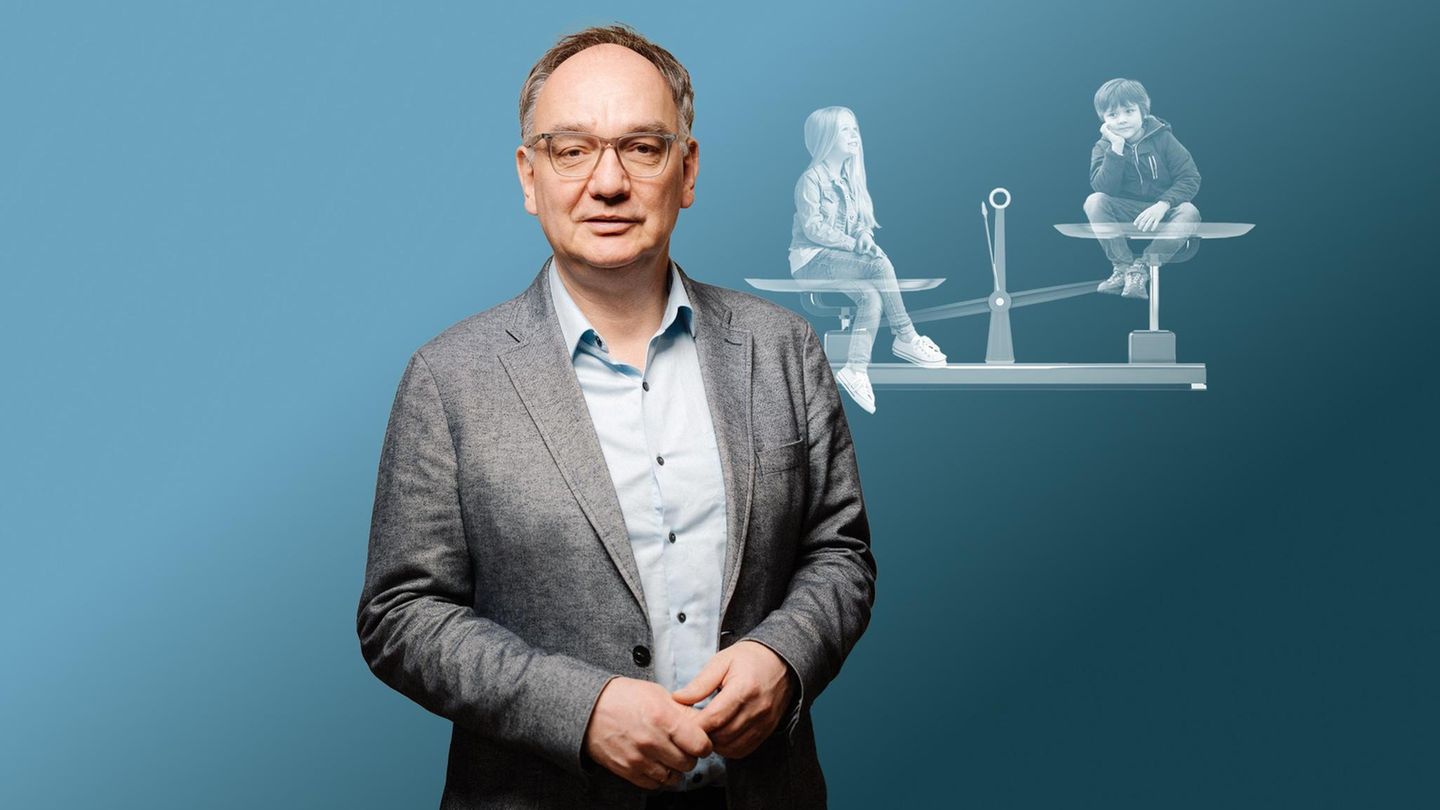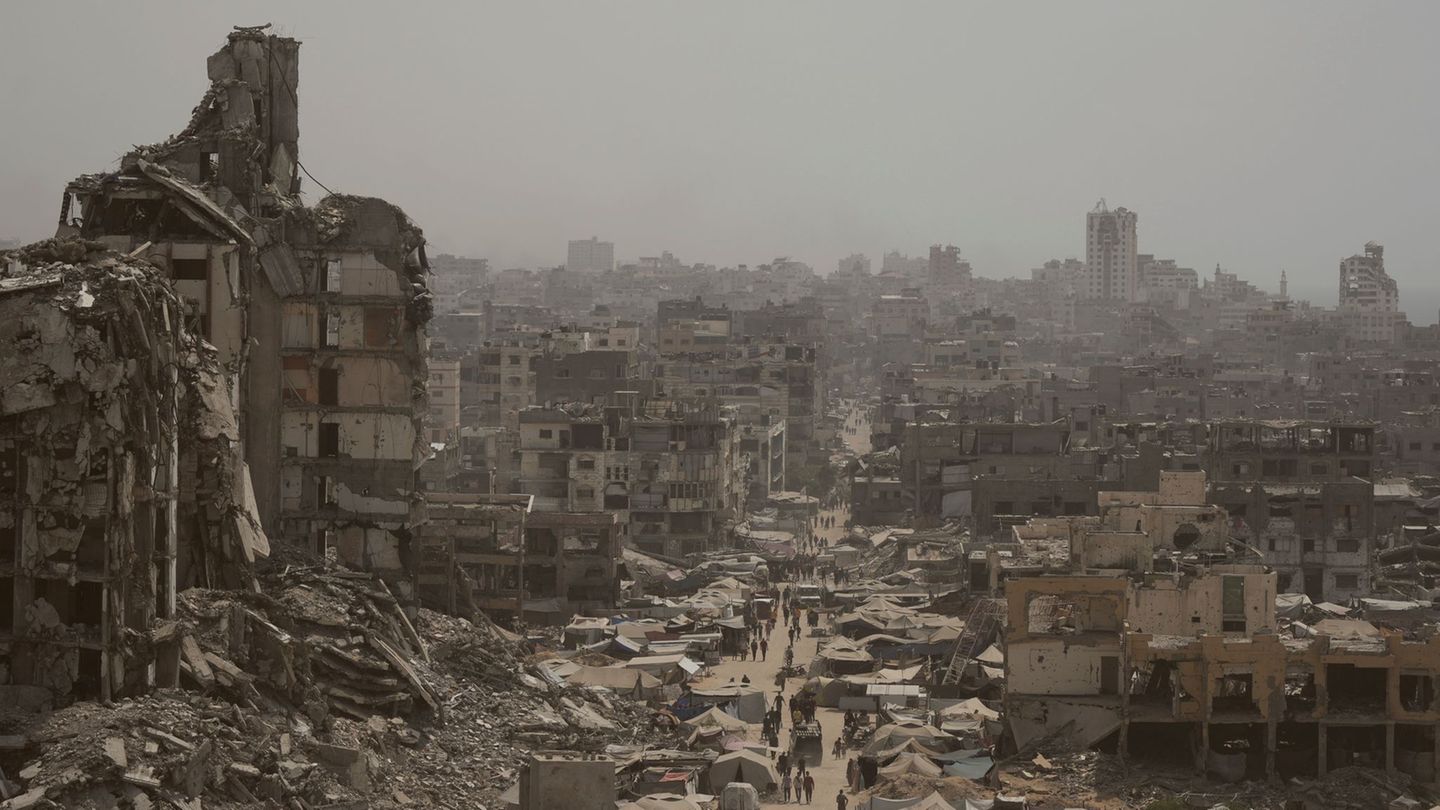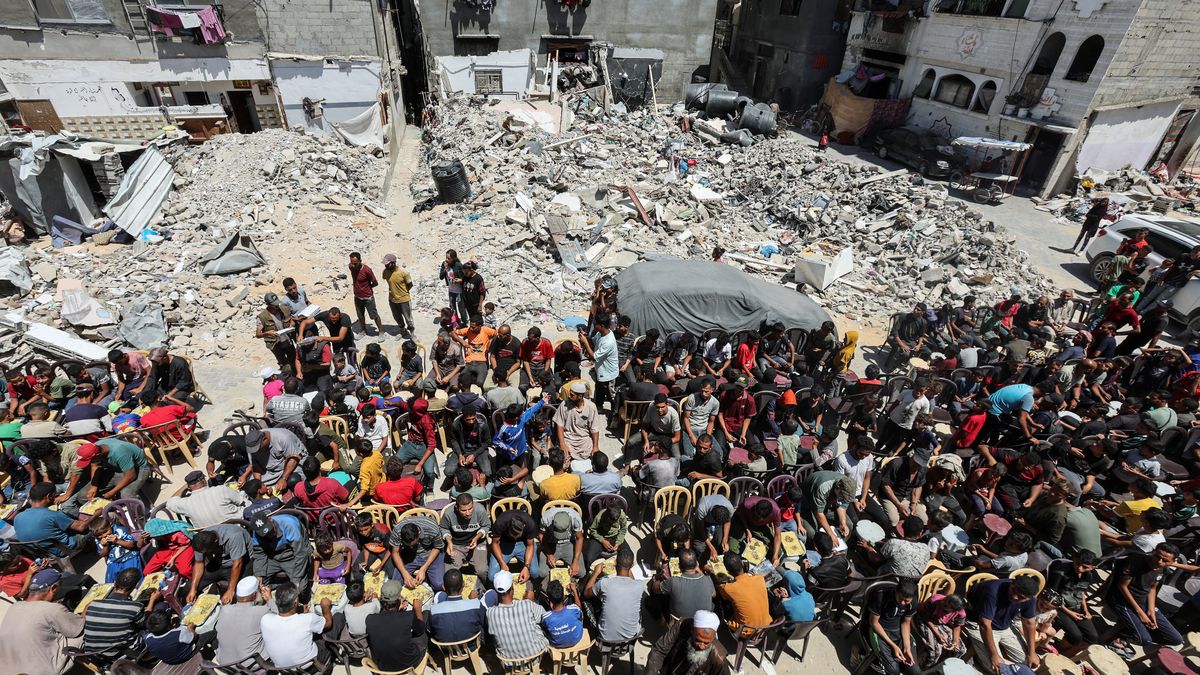TV debate
Maybrit Illner and her guests wanted to look for trouble spots in the EU, where unity should actually be at stake. The guest from the USA praised Germany’s actions. –
To title a talk show with the subject of an argument rarely leads to harmony. Nevertheless, one guest in particular at Maybrit Illner tried very hard to mediate. Above “Dispute instead of strength – but not together against Putin?” should be discussed, but initially it was all about Recep Tayyip Erdoğan.
Guest at “Maybrit Illner” were:
- Claudia Roth (Alliance 90 / The Greens)Minister of State for Culture
- Gwendolyn Sasspolitical scientist and Slavicist, director of the Berlin Center for East European and International Studies (ZOiS)
- Manfred Weber (CSU), Party and group leader of the Christian Democratic European People’s Party (EPP) in the European Parliament
- Ben Hodges, Lieutenant General a. D., until the end of 2017 Commander-in-Chief of US Land Forces in Europe, now a specialist in geopolitical issues and European defense policy at the Center for European Policy Analysis (CEPA)
- Deniz YucelGerman-Turkish journalist and publicist
- Elmar Thevessenhead of the ZDF studio Washington
“Fire hazard” is the double game that Erdoğan is currently playing with the EU and Russia, said Manfred Weber. The EU should under no circumstances get involved, but instead show a clear edge and act with determination and strength. But that is exactly what has not been the EU’s strength for a long time, and it is becoming all too clear now in the war against Ukraine. There doesn’t seem to be much agreement on this, individual member states keep complaining about Germany’s reluctance to deliver arms or the phone calls to Putin that some see as being too frequent.
Claudia Roth did not see this as a major problem, since no negotiations were conducted in these meetings, and Gwendolyn Sass even saw an advantage in this. Because if there was no talk, the moment could be missed when there would be a willingness to talk on Putin’s side.
“Autocrats are not reliable partners”
Above all, Deniz Yücel fears that Turkey will “upgrade” could experience if Erdoğan were relieved of the role of mediator too much. “Autocrats are not reliable partners”, he said. Putin taught us that, and Erdoğan could also teach us that in five to ten years. But at the moment that is not to be feared. Elmar Theveßen reported via video link from Washington that Erdoğan “very annoyed” be. His blockade of accepting Sweden and Finland into NATO is just as much criticism as the demands for new aircraft. But for all the frustration, Ben Hodges made it clear that it was his opinion “no NATO without Turkey” could give. Lieutenant General a. D. US failures in relation to Turkey, then to point out that “a lot of work in-house” must be done.
Germany is the most important ally
Germany is “maybe not always our favorite, but our most important ally”, said Hodges and at the beginning of the talk drew attention to Germany’s special position in the Russian war against Ukraine. While Yücel was still upset about the lack of arms deliveries, Hodges struck a more conciliatory tone. Everything had been delivered except for the self-propelled howitzers and Germany had helped in many ways. The Germans might be there “embarrassed” and couldn’t really show what they were doing. The criticism of the ring exchange was inappropriate, Greece and Spain had complained wrongly.
That’s more of the problem anyway “distribution network” between Poland and eastern Ukraine and not that Germany would not deliver. Of course, Claudia Roth did not leave this praise uncommented, she immediately listed everything that Germany had already done apart from supplying arms. Contrary to Yücel’s assertion, that is not the case “symbolic solidarity”but tangible support worth billions in the form of reconstruction services and humanitarian aid.
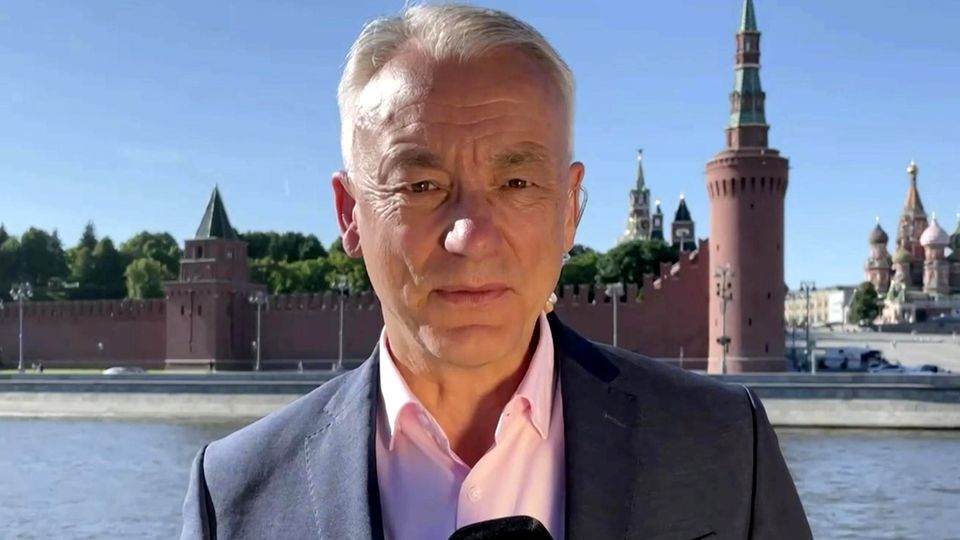
Is the EU really divided?
Roth then found it understandable that there was this criticism from the other EU member states, as the editors of the talk show summarized very condensed in the clip. but “certain assumptions cannot be justified”the EU is not as divided as Illner, among others, outlined it on this talk evening.
Gwendolyn Sass found this criticism quite justified, but was more disturbed at the front “Eastern Europe” vs. “Western Europe”, which Maybrit Illner wanted to open several times. On the one hand, that is geographically completely wrong, because Poland and Hungary are not in Eastern Europe. On the other hand, there is no uniform line on the part of the Baltic States, which is also not the case in Western Europe. This simplification of the facts and the opening of a new source of contention ultimately only plays into Putin’s pocket, according to the political scientist.
Will Europe come together?
The reason why the Baltic countries in particular are increasingly criticizing Germany lies in the past and Nord Stream 2. The countries felt for years from the German state “passed over”. There will be, so Sass, “other accents”, which is also historical, but there would be no general anti-Germany attitude. Manfred Weber prophesied “a coming together” in Europe alongside all criticism.
Further topics:
- Weapons shipments are an ongoing issue: Manfred Weber thought it was “talked too much about the guns” been, Claudia Roth thought it was a good thing that the government in arms deliveries “wrestles with himself” instead of delivering immediately. The topic of heavy weapons for Ukraine will probably fill further programs.
- The war is a wake-up call for Europe: Elmar Theveßen reports from Washington that the war in the USA is also perceived as a litmus test in the struggle between authoritarianism and democracy. What everyone is waiting for is strong governments that put Putin in his place.
- end of the war: No one knows when the war will end, but Ben Hodges reckons that by the end of the year, when all weapons have been delivered, Ukraine will prevail and Russian forces can be pushed back to the January 2022 borders.
Ukraine and candidate status
Manfred Weber also sees the member states’ criticism as a request for leadership from Germany. be straight “we Europeans […] naked in a world full of storms”. But at this moment there is a chance to negotiate new contracts and come together in a new way. Gwendolyn Sass also campaigned for this. For her, the decisive factor is how the EU will vote on Ukraine’s candidate status.
It may “no turning back, no procrastinating” only give a clear signal that this candidacy is supported. Here, too, Germany can act as a role model. The signal is an important one for the Ukrainians. For while, according to Sass, joining NATO was certainly worth discussing, joining the EU was never a contentious issue for the country. According to the political scientist, the candidate question for Ukraine is an opportunity for the EU to find more unity again and to face the coming challenges together.
Source: Stern
David William is a talented author who has made a name for himself in the world of writing. He is a professional author who writes on a wide range of topics, from general interest to opinion news. David is currently working as a writer at 24 hours worlds where he brings his unique perspective and in-depth research to his articles, making them both informative and engaging.

